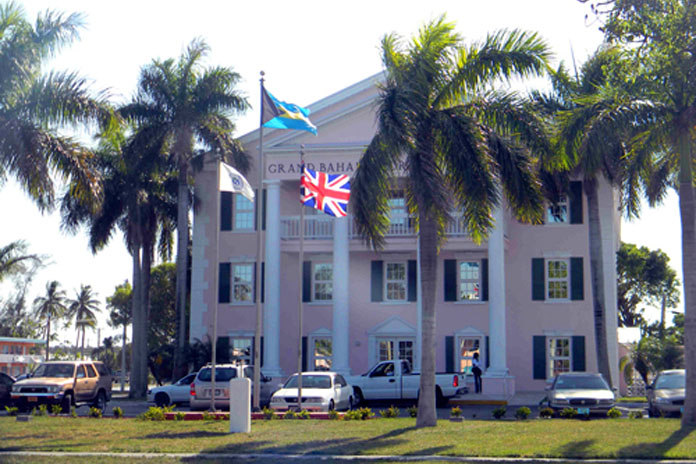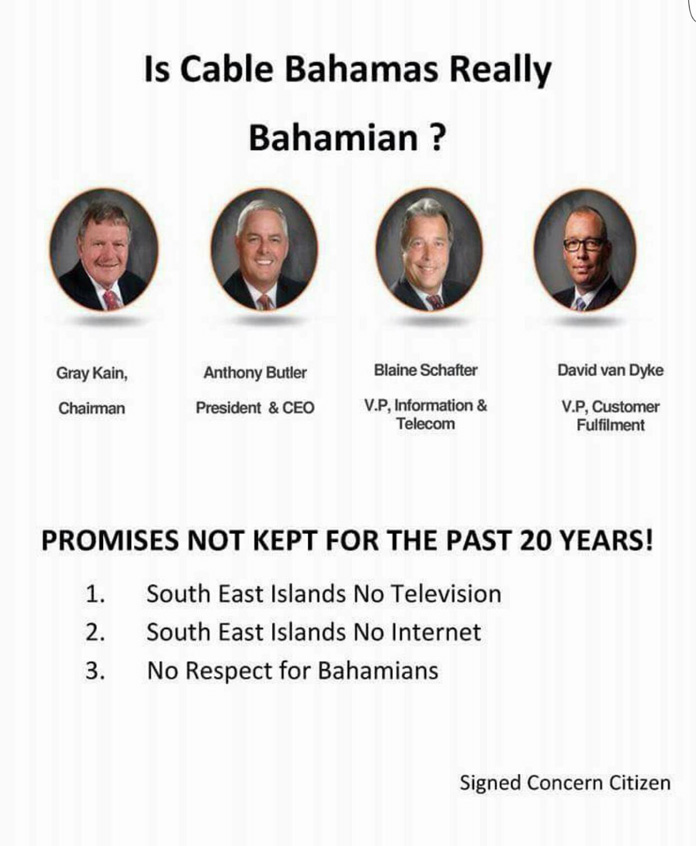
Freeport, The Bahamas – The Grand Bahama Port Authority (GBPA) is pleased to announce the approval of The Grand Bahama Power Company’s (GBPC) revised rate application. The new rate structure will take effect February 1, 2016 and result in clear savings for all of GBPC customers and a stabilization of costs to consumers. After having the consultation period extended from 1 December, 2015 to 15 January, 2016 and receiving valuable input from stakeholders, GBPC revised their original rate application proposing additional changes resulting in all customers seeing a decrease in the amount of money they are paying for their total power bill. We required the GBPC to focus on low income residential customers, the deferral of future generation investment and the introduction of renewables to their energy mix.
The new rate structure is returning the cost of electricity to rates that were last seen in 2008, and keeping the rates there for three years. All customers of GBPC are seeing their total (All-In) power bill decrease between 7% and 12%. We are pleased to advise that the proposed average base rate increase has been reduced from 3.5% to 1.5%, with 90% of residential customers seeing a decrease in their base rate, which contributes to the increased savings on the total power bill. The greatest savings will be seen by low income residents, with both a base and all-in decrease totalling a 12% savings. Residential Customers will see annual savings amount between $150 and $500, depending on consumption.
Both Commercial and General Service large customers will see their total (All-In) power bills decrease by approximately 8% and 9% respectively. Recognizing that the Industrial sector is a key economic driver for this island, GBPC has worked with its stakeholders to develop a new large industrial rate that defers future GBPC generation investment. We are confident that this rate will continue to promote future expansion plans, economic growth and job creation in the industrial sector, while saving customers from a rate increase.
In 2012, GBPC put forward a clear plan to improve the state of the power system, stabilize pricing and introduce renewables. This, coupled with introduction of the first regulatory framework for electricity in the Bahamas drove improvements such as:
· More than a 55% improvement in customer reliability results for the supply of electricity
· Improvements of more than 25% for plant efficiency (heat rate/ engine efficiency)
· The reduction in fuel charge by 25% from 2014 to present
· A fuel hedging program providing for long term fuel pricing stability
· Heightened focus on customer service and customer satisfaction
To minimize future rate changes to customers, GBPA has approved GBPC’s strategy to utilize renewable energy sources such as solar and storage technology to meet the energy needs of customers. Over the next 3 years, GBPC has outlined a detailed plan to execute a number of initiatives that will ensure that the cost of electricity continues to be stabilized and that investment in additional fossil fuel based generation is deferred; thereby, minimizing future changes in the cost of electricity. These initiatives include:
· The change-out of all streetlight and Night Guard lighting to LED technology in 2016; LED lights are more environmentally friendly, consume less electricity, require less maintenance and last longer than the HPS lamps that are currently being used;
· The introduction of solar technology consistent with Government Energy Policy of 30% renewables by 2030
· The evaluation and introduction of storage technology, designed to release stored/excess energy to the grid and for use when consumers need it;
· The introduction of Advanced Metering Technology or AMI/Smart Grid, which will help customers to better manage their energy consumption and allow GBPC to manage internal operating costs, identify outages and resolve customer power quality issues;
· The opportunity for customers throughout Grand Bahama to sell energy they produce to the utility with the development of GBPC’s new Renewable Energy Rider rate. This rate allows customers to supply GBPC with energy generated from renewable sources such as Solar PV, Wind turbine or other forms of renewable energy to GBPC;
· The continuation of the Economic Development Rate, the goal of which is to attract new investment and encourage expansion of existing industrial and commercial businesses on Grand Bahama;
· The introduction of a new Large Industrial Rate which is aimed at attracting customers to Grand Bahama, who meet applicable criteria, which also helps GBPC to defer future investment in generation equipment;
· An aggressive education plan that focuses on helping customers better understand how they can use energy more efficiently and ultimately lower their bills;
· The use of biofuel as a source of energy in GBPC diesel vehicles by the end of 2015 and in generation equipment, in early 2016, as the volume of biodiesel produced permits;
· Continuation of the Fuel hedging policy, which see a further reduction in the fuel charge by 40% from 2014 beginning in February
GBPA believes that GBPC’s overall submission demonstrates a commitment to resolving issues that GBPA identified and challenged the utility to address. GBPA will continue to ensure that GBPC initiatives are aligned with the long term goal of reducing the cost of power to Grand Bahama residents and becoming less dependent on fossil fuel for the production of energy. The Regulatory Framework that was put in place in 2012 has guided us through this formalized regulatory process of rate setting in Grand Bahama. We believe that we have set clear standards in place for the GBPC to track, monitor and report their performance, so that we can ensure they are compliant with the regulatory standards that are currently in place for Grand Bahama and consistent with those of other regulatory jurisdictions in North America or the Caribbean.
Customers are encouraged to go to the GBPA website at gbpa.com for further information regarding the consultative process and the approved rate information.









